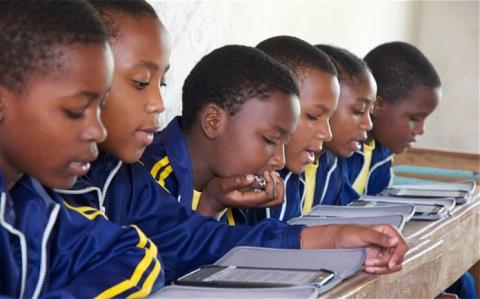Education stakeholders are currently holding a meeting in Kilwa, Southern Tanzania to find ways of Strengthening Systems within the sector for improved performance in public schools.
The two-day workshop, which kicked off today, is an initiative under the Strengthening Education Systems in East Africa (SESEA) project which is established under the Aga Khan
University’s Institute for Educational Development (IED).
The five-year project, which ends next year, is being implemented in Tanzania, Kenya and
Uganda and targets at least 187,344 school children (95,823 girls) in the region.
It is funded by the Aga Khan Foundation (AKF) Canada and the Global Affairs Canada and
implemented by the Aga Khan Development Network (AKDN) through IED and AKF.
The workshop brings together Government officials, AKDN agencies, IED alumni, collaborating partner institutions, Non-Governmental Organizations, teachers and local communities.
It offers key players in the education sector a platform to share ideas on how to enhance gender equality and inclusion in the sector and make the project sustainable.
Speaking during the opening session, the Director for Higher Education, Ministry of Education
Science and Technology, Dr. Sylvia Temu lauded AKU and AKF for contributing to improved
quality of education in public schools through the project.
Dr. Temu said SESEA has helped in developing capacity of teachers leading to high scores by pupils in national exams.
“The idea to start the project to strengthen education in Tanzania and East Africa since the year 2013 is a progressive step for development. SESEA has supported Government objectives to enhance the quality of education in public schools,” she said.
Since establishment, at least 202,937 students have benefited from the project. It has awarded scholarships to about 20 teachers to pursue Master’s Degrees and trained at least 2,182 tutors and teachers.
Assistant Professor at IED, Mweru Mwingi said the project has played a critical role in enhancing gender balance in the education sector and raising awareness about the plight of the girl-child in targeted communities through training, mentorships and targeted interventions at school and classroom levels.
“Our goal, as we close SESEA is that the lessons learnt over the five years are embedded in the education sector and sustained for years after the project close,” said Mwingi.
SESEA has been operating in 150 schools in Nachingwea, Kilwa and Newala districts and rural Lindi.
In Newala, SESEA has reached all schools near Kitangali Teachers Training College (TTC). It has also worked with TTC’s of Nachingwea and Kitangila on cooperation with education officers to build the capacity of tutors and students through seminars on preparation of teaching curriculums.










